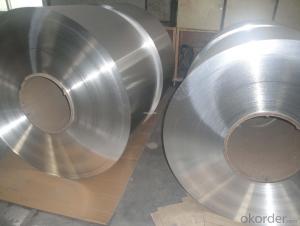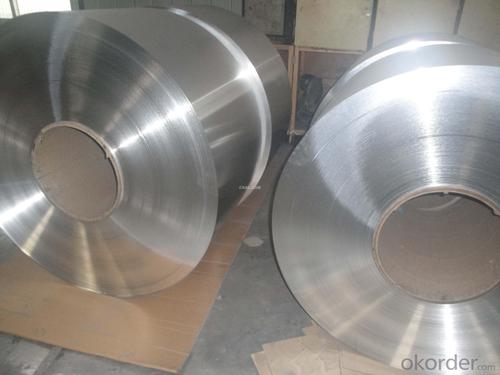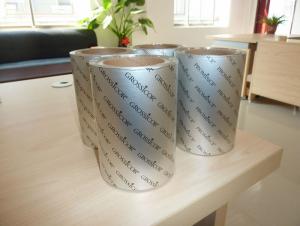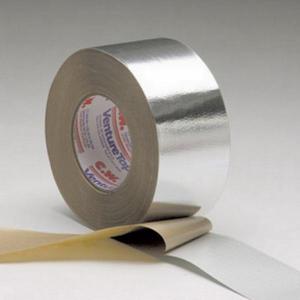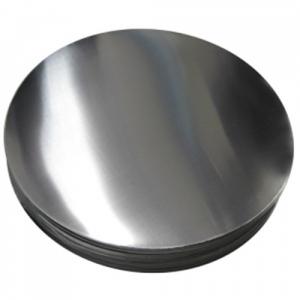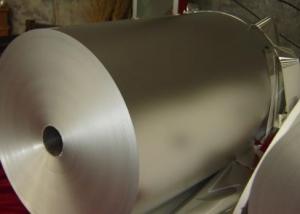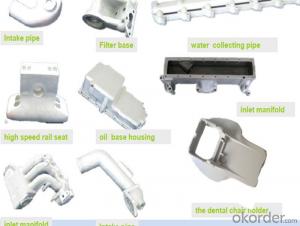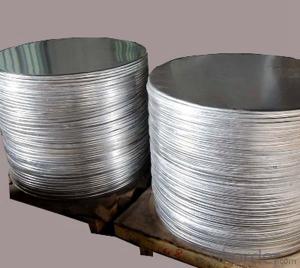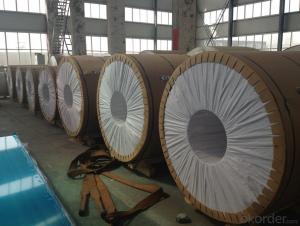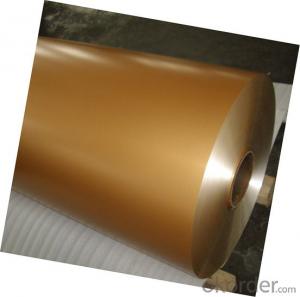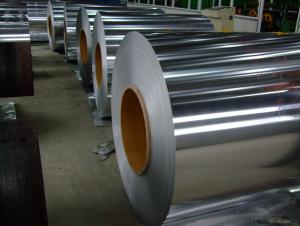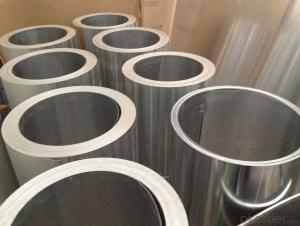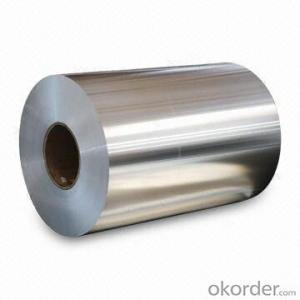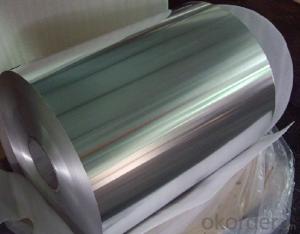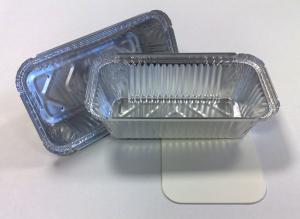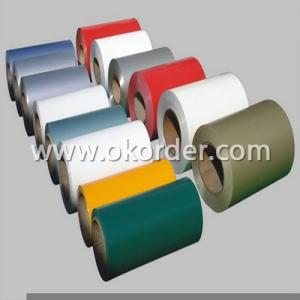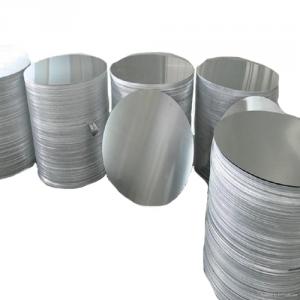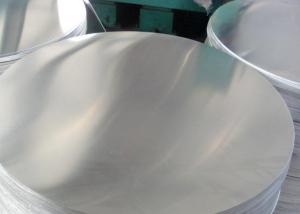Aluminum Coil for Gutter Making in China
- Loading Port:
- Shanghai
- Payment Terms:
- TT OR LC
- Min Order Qty:
- 5 m.t.
- Supply Capability:
- 100000 m.t./month
OKorder Service Pledge
OKorder Financial Service
You Might Also Like
Specification
Product Description
Commodity: Aluminum coil jumbo rolls
Alloy: 1050/1060/1100/1200/3003/3004/3005/3105/5005/5052/5754/5083/6061/8011
Temper: O, H12,H14,H16,H18,H22,H24,H32,H112,T6
Gauge: 0.2mm-8mm
CC and DC material with higher tensile strength and bigger elongation
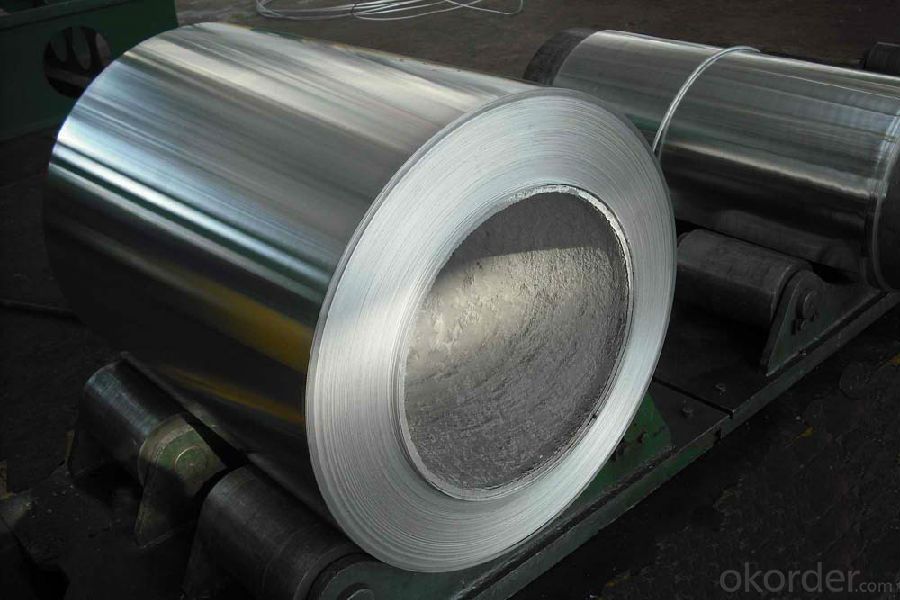
Aluminum Coil - Packaging
Standard Packaging
- Vertical axis packaging
- Core types: Fiber, Aluminum, Steel, Plastic
- Inner Diameter (ID) as required
- Outside Diameter (OD) as required
- Inserts as required
- Separators as required - cardboard or wooden slates
- Wooden Pallets or Crates
Custom Packaging
- Custom packaging, coil weights, inner diameters and outer diameters are available upon request.
Export Packaging
- Export packaging in conformance with IPPC International Standards is available upon request.
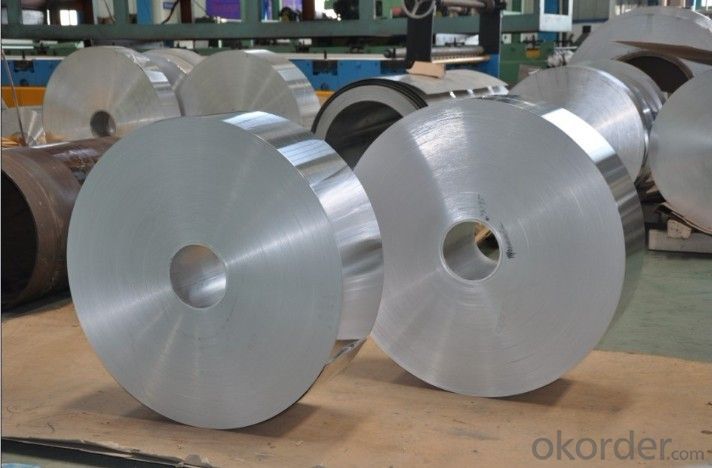
Aluminum Coil - Custom Finishes
Painting, Anodizing and Other Coatings
- Polyester, Acrylic, Silicone Polyester, Kynar (Flouropolymer), Krystal Kote, etc.
- All colors and gloss levels.
- One-side or two sides.
Aluminum Coil - Special Processing
- Cut-to-Length
- Tension Leveling
- Paper Interleaving
- Fine grain, minimum earring, anodizing quality
Our main products for aluminum coils are as follows:
Commodity | Alloy | Temper | Thickness /mm | Width /mm | |
Base material | 1235 1200 1140 8*** | H14 H18 | 0.25-1.00 | 950-1340 | |
Coil for PS | 1050 1060 | H18 | ≥0.2 | 830/920 1030/1050 | |
Sheets for PS | 1050 1060 1070 | H18 | 0.13-0.3 | 650-1300 | |
Strip for venetian blinds | 5052 | H19 | 0.13-0.3 | 300-1300 | |
Coils for composite panels | 1100 3003 3005 | H18/HX2 HX4/HX6 HX8 | 0.03-1.0 | 1000-1300 | |
Coils for other uses | 1100 1235 3004 5052 8011 | H14 H18 H24 O | 0.3-0.4 | 1000-1600 | |
Sheets/Strips for other uses | 5052 | O/H32/H34 | 0.07-2.0 | 950-1550 | |
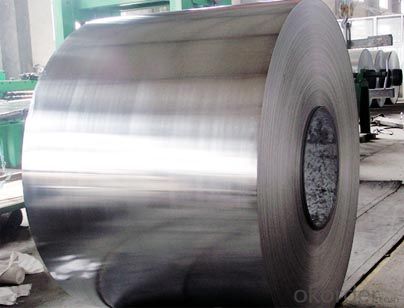
Our Services
CNBM is ready to assist with any product needs or enquiries. We value our customers and welcome your thoughts and feedback.
Please send comments, questions and requests through alibaba or our personal contact so they can be directed to the appropriate department.
About samples: Based on our company rules, a few samples are willing to be offered, but clients are requested to pay freight.
Working time:9:00~17:30(GM+8) from Monday to Friday, but you also can contact with us via personal contact information during our leisure time. We will try our best to offer you service in 24*7 hours.
Any quality, quantity problems are occured, response you will get in time not over more 24 hours after we recieve your complains. Problems will be solved in one week throught friendly negotiation.
FAQ
Q: Can you provide free samples?
A: Yes, free samples will be sent to you on freight at destination.
Q: Can I get your latest catalogue?
A: Yes, it will be sent to you in no time.
Q: What is the MOQ?
A: 5 tons
Q: What are your payment terms?
A: We accept L/C, D/A, D/P, T/T, West Union,etc.
If you are interested in our products, please do not hesitate to contact with us via following information
- Q: Is it possible for aluminum to penetrate the skin and be absorbed into the body?
- <p>Aluminum can be absorbed through the skin, but the rate and extent of absorption are generally low. The skin acts as a barrier and only allows minimal absorption of aluminum. Most aluminum exposure comes from ingestion, not dermal absorption. The body's ability to absorb aluminum can be influenced by factors such as the form of aluminum, the condition of the skin, and the duration of exposure. However, it's important to note that aluminum is commonly found in everyday products and is generally considered safe in the amounts typically encountered.</p>
- Q: This question asks for the distinguishing characteristics of aluminum compared to other metals.
- <p>Aluminum is a lightweight, silvery-white metal that is the most abundant metal in the Earth's crust. It is known for its low density, making it one-third the weight of steel. It is highly malleable, ductile, and has excellent corrosion resistance due to the formation of a protective oxide layer. Unlike many other metals, aluminum is not magnetic and has good thermal conductivity. It is also non-toxic and can be recycled easily. These properties make aluminum distinct from other metals such as iron, copper, and lead, which have different densities, melting points, and chemical reactivities.</p>
- Q: Is there a connection between aluminum exposure and the development of Alzheimer's disease?
- <p>Aluminum has been a subject of debate regarding its potential link to Alzheimer's disease. However, current scientific consensus does not support the idea that aluminum exposure causes Alzheimer's. Extensive research has failed to establish a definitive causal relationship between aluminum and Alzheimer's. While aluminum is naturally present in the environment and can be found in some foods, water, and medications, studies have not shown it to be a significant risk factor for the development of Alzheimer's. The disease is believed to be caused by a combination of genetic, lifestyle, and environmental factors, but aluminum is not considered one of them.</p>
- Q: Is it safe and effective to use aluminum foil for wrapping food items in a freezer?
- <p>Yes, you can use aluminum foil to wrap food in the freezer. Aluminum foil is a good insulator and can help protect food from freezer burn. It also prevents cross-contamination and keeps odors from affecting other foods. Ensure the foil is tightly wrapped around the food to maintain freshness and quality. However, for long-term storage, it's recommended to use airtight containers or freezer-safe plastic bags in addition to or instead of foil, as they can provide better protection against freezer burn and moisture loss.</p>
- Q: Is it possible to use aluminum as a material in the construction of solar panels?
- <p>Yes, aluminum is commonly used in solar panels. It is utilized in the frame of the solar panel to provide structural support and protection. Aluminum is chosen for its lightweight, high strength, and resistance to corrosion, which are beneficial properties for outdoor applications like solar panels. It also helps in heat dissipation, which is crucial for maintaining the efficiency of the solar cells. While aluminum is not a primary component of the photovoltaic cells themselves, its role in the overall structure is significant.</p>
- Q: Is it possible to utilize recycled aluminum to manufacture new items?
- <p>Yes, recycled aluminum can be used to make new products. It is an environmentally friendly and cost-effective process. Recycling aluminum conserves energy, as it requires only 5% of the energy needed to produce new aluminum from raw materials. Recycled aluminum maintains its properties, making it suitable for various applications, including automotive parts, construction materials, and consumer goods. The process also reduces waste and greenhouse gas emissions, contributing to sustainability efforts.</p>
- Q: Is it possible to recycle aluminum from old products to create new ones?
- <p>Yes, aluminum can be recycled to make new products from old ones. Recycling aluminum is a highly efficient process that requires only 5% of the energy needed to produce new aluminum from raw materials. This process is not only environmentally friendly but also economically viable. Recycled aluminum maintains its quality and can be used to create a wide range of new products, from cans and packaging to automotive parts and construction materials.</p>
- Q: Is it safe and effective to use aluminum foil for wrapping food items in a refrigerator or freezer?
- <p>Yes, you can use aluminum foil to wrap food in a refrigerator or freezer. Aluminum foil is a good insulator and can help keep food fresh by preventing freezer burn and moisture loss. It also protects food from absorbing odors. However, it's important to ensure the foil is tightly wrapped around the food to maintain its effectiveness. Additionally, avoid using aluminum foil with acidic foods as it can react with them, potentially causing a metallic taste.</p>
- Q: This question asks about the impact of adding zinc to aluminum alloys and how it changes their characteristics.
- <p>Adding zinc to aluminum alloys significantly enhances their mechanical properties, particularly strength and hardness. Zinc increases the alloy's resistance to deformation, making it more suitable for applications requiring high strength-to-weight ratios. This addition also improves the alloy's resistance to corrosion, especially in marine environments. However, it's important to note that excessive amounts of zinc can lead to a decrease in ductility and increase the risk of cracking, especially during welding or heat treatment processes. The addition of zinc also affects the alloy's thermal conductivity and electrical conductivity, typically reducing both. Overall, the addition of zinc to aluminum alloys is a balancing act to achieve desired properties for specific applications.</p>
- Q: This question asks for recent applications of aluminum in contemporary society.
- <p>Aluminum has found new uses in modern society across various sectors. In the automotive industry, it is used to manufacture lightweight vehicles for fuel efficiency and reduced emissions. In construction, aluminum is utilized for building facades, window frames, and roofing due to its durability and low maintenance. The aerospace industry also relies on aluminum for aircraft construction because of its strength-to-weight ratio. Additionally, aluminum is used in electronics for heat sinks and casings, and in the packaging industry for food and beverage cans. It's also gaining traction in the energy sector, particularly in battery technology for electric vehicles and renewable energy storage solutions.</p>
Send your message to us
Aluminum Coil for Gutter Making in China
- Loading Port:
- Shanghai
- Payment Terms:
- TT OR LC
- Min Order Qty:
- 5 m.t.
- Supply Capability:
- 100000 m.t./month
OKorder Service Pledge
OKorder Financial Service
Similar products
Hot products
Hot Searches
Related keywords
